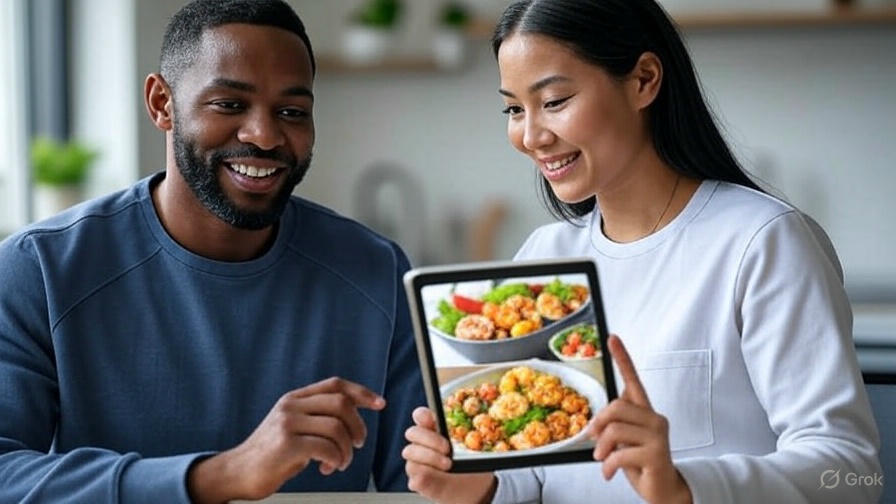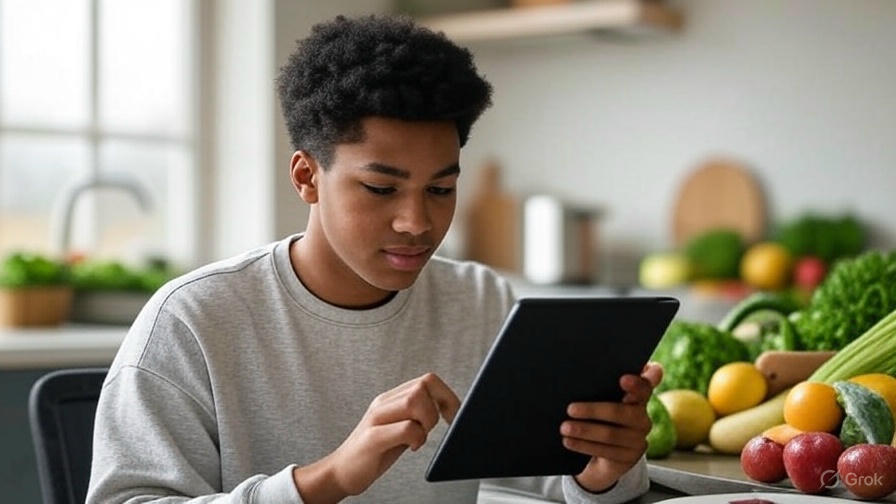Remember the days when healthy eating meant counting every calorie, banning carbs like they were Voldemort, and pretending to like kale smoothies? Yeah… same. But let’s be real: the way we think about food is changing—and fast. Thanks to tech, psychology, and a little sprinkle of common sense, the future of diet planning looks a lot less like punishment and a lot more like empowerment. Let’s dive in.
The Big Shift: From Restriction to Personalization
Gone are the days of one-size-fits-all diet charts pinned to your fridge. Now, it’s all about you. Your body. Your lifestyle. Your preferences.
What’s driving this change?
- Wearable tech: Ever used a Fitbit or Apple Watch? These gadgets are becoming mini nutritionists, tracking everything from steps to sleep to stress. Soon, they’ll suggest meal plans based on your real-time data.
- DNA-based diets: Yep, your genes might just tell you if you’re meant to be a carb-lover or a keto queen. Nutrigenomics is blowing up.
- AI-powered meal planning: Apps like MyFitnessPal and Yazio? They’re getting smarter. Soon, they’ll consider your mood, weather, menstrual cycle, and even your Google Calendar.
Honestly, it’s like having a tiny food whisperer in your pocket.
Smart Kitchens Are the New Nutritionists
Ever had your fridge judge you for reaching for the leftover cheesecake? Well, in the near future, it might.
Here’s what’s cooking:
- Smart appliances: Think fridges that track expiration dates, suggest recipes based on what’s inside, and even sync with your diet plan.
- Voice assistants for meal prep: Alexa or Google Assistant could become your sous-chef. “Hey Alexa, what’s a low-sugar breakfast idea?” Boom.
- Meal scanners: Devices that scan your plate and tell you how balanced your meal is. Great for when you’re debating whether adding that extra spoon of peanut butter is “healthy fat” or just plain greedy. (Been there.)
Mental Health + Diet = The Power Couple
Raise your hand if you’ve stress-eaten a tub of ice cream at 2 a.m. No judgment—we’ve all been there. The future of diet planning finally acknowledges that food isn’t just fuel. It’s emotional. It’s cultural. It’s personal.
Expect to see more:
- Intuitive eating guides: Apps that help you understand hunger cues and emotional triggers.
- Mindful eating tech: Wearables that buzz when you’re stress-eating or suggest a breathing exercise before bingeing.
- Therapy-based nutrition coaching: Where dietitians team up with therapists to create plans that nurture both body and mind.
By the way, did you know studies show that mindful eaters have a better relationship with food and fewer weight issues? Food for thought, huh?
The Rise of Digital Diet Coaches
Forget the outdated pyramid charts. In the future, your diet coach might be a chatbot—or even a hologram. (Okay, that one’s a bit sci-fi. But not impossible!)
Here’s how digital diet planning is evolving:
- AI chatbots: Available 24/7 to answer questions like “Is peanut butter keto?” or “How many almonds is too many?”
- Augmented Reality (AR) grocery guides: Imagine pointing your phone at a product in a store and getting a breakdown of its nutrition score, allergens, and how it fits into your diet plan.
- Gamified meal planning: Turn your diet goals into missions. Earn points for eating greens or drinking water. Who said health can’t be fun?
Sustainable Diets Are the New Sexy
It’s not just about you anymore. It’s about the planet too. Future diet planning merges personal health with environmental love.
What’s hot:
- Plant-based everything: Beyond Meat, oat milk, jackfruit tacos—you name it. The plant-based scene is booming.
- Carbon footprint food scores: Expect to see eco-ratings on packaging, helping you choose meals that are kind to Mother Earth.
- Lab-grown meat: Yep, meat without the moo. Still in early stages, but the future menu is looking… cruelty-free and climate-smart.
Let’s face it: saving the world one tofu wrap at a time doesn’t sound too bad.
Personalized Supplements and Functional Foods
Popping a daily multivitamin? That’s so 2020.
What’s changing:
- AI-curated supplements: Imagine getting a pack of pills tailor-made for your deficiencies, age, activity level, and cycle.
- Functional foods: Think yogurts that help you sleep, teas that boost focus, or snacks that reduce anxiety.
- Gut-health focus: Your gut microbiome is the MVP. Diet plans will increasingly include probiotic-rich foods, prebiotic snacks, and fermented delights.
Honestly, if my snack could help me sleep and digest better? Sign me up.

Quick FAQ: Answering the Big Questions
Will AI replace dietitians?
Nope. AI will assist, not replace. Human dietitians bring empathy and cultural context that machines can’t replicate.
Are personalized diets safe?
Yes, when supervised by professionals. Always consult a registered dietitian before making major changes.
Can food really improve mental health?
Absolutely. Nutritional psychiatry is a growing field proving the brain-gut connection is very real.
Real Talk: My Own Journey with Future Foods
Last year, I tried a DNA-based diet plan. Turns out, my genes are not keto-friendly (sorry, bacon lovers). I also experimented with a smart scale that syncs with my diet app—it even congratulated me for eating quinoa instead of chips. Felt weirdly rewarding.
But the real game-changer? Intuitive eating. Listening to my hunger cues instead of jumping on every TikTok diet trend. I’ve never felt more in control—and honestly, more at peace.
The Bottom Line: Diet Planning Is Getting Smarter, Kinder, and Way More Fun
The future isn’t about obsessing over calories or turning food into the enemy. It’s about holistic wellness—where physical health, mental peace, and environmental awareness all sit at the same dinner table.
So whether you’re a fitness freak, a working mom juggling a million things, or someone just trying to make peace with food—take heart. The future of diet planning is flexible, personalized, and built around you.
Oh, and one last thing—
What’s your food future going to look like?
Drop your thoughts in the comments below or share your own experience with new-age diet tools. I’d love to hear it!
Call to Action: If this post made you rethink your diet goals, go ahead—share it with a friend, try one new tech-based food hack this week, or better yet, subscribe for more insights like this. Let’s make the future of food smarter—together.
